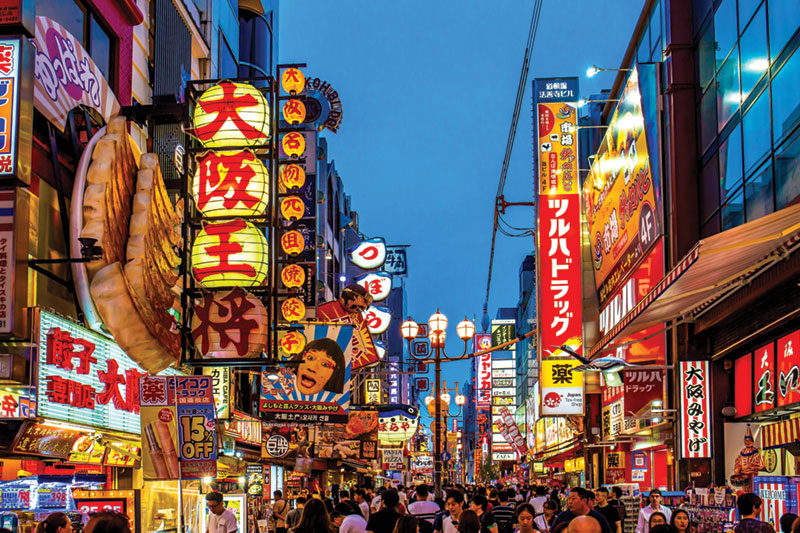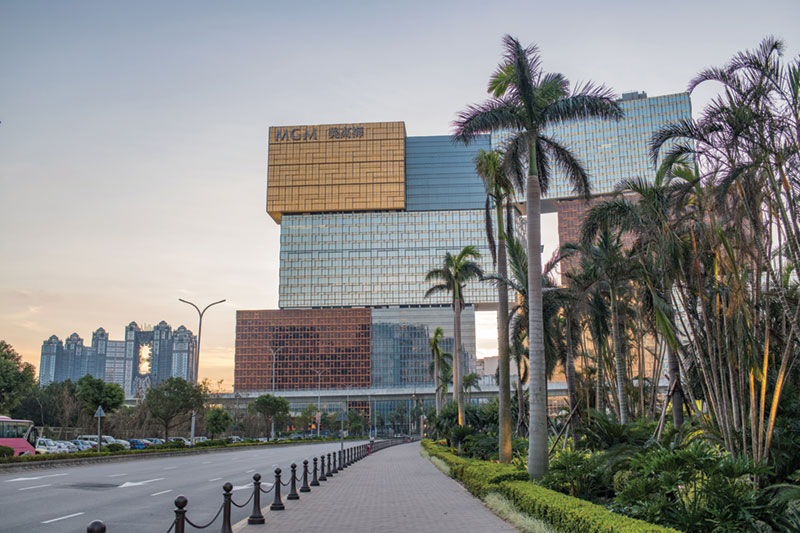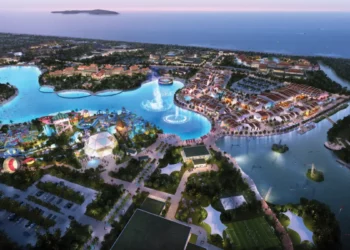Managing Partner at Hong Kong’s Delta State Holdings Ltd, David Bonnet, explains why IR operators may need to reevaluate their expectations on ROI in Japan and beyond.
Investors seeking above-market returns through participation in integrated resort (IR) business ventures may need to recalibrate their return on investment (ROI) expectations on the heels of the COVID-19 pandemic.
A combination of high barriers to entry along with restricted competition have previously allowed Asia’s casino industry to thrive. In the past 10 years, new major markets have emerged in both Singapore and the Philippines, while Macau’s Cotai Strip has witnessed nearly US$40 billion of overall IR investment. Historically, even smaller regional casino developments with questionable business plans could generate substantial profits such that a large number of under-qualified schemes were approved and funded. In general, most of the megaresorts in Macau and Singapore were underwritten with the expectation that they could generate annual returns greater than 20%, and in fact a majority of early projects did produce impressive cash flows with payback periods of less than five years. However, greater regional competition, an increasingly regulated and therefore waning VIP market coupled with reduced tourism volumes due to varying travel restrictions will likely cause future returns and payback periods to hover in the low double digits.
 These reduced returns and longer payback periods are normally unattractive to casino developers who are highly cognizant of obtaining licensing terms that are financeable by the capital markets. It is for this and other reasons that major global casino operators including Las Vegas Sands (LVS) and Wynn Resorts have abandoned the Japan market, citing its tough business environment, short license tenure and inflated projected capital costs.
These reduced returns and longer payback periods are normally unattractive to casino developers who are highly cognizant of obtaining licensing terms that are financeable by the capital markets. It is for this and other reasons that major global casino operators including Las Vegas Sands (LVS) and Wynn Resorts have abandoned the Japan market, citing its tough business environment, short license tenure and inflated projected capital costs.
Yet, their respective investment hurdles are more than likely developed on a business plan resembling those that generated the outsized profits they yielded from realizing first-mover advantages in Macau – offering their then-unique casino gaming products to a newly opened and growing market. Most probably they used an investment framework based on those specific circumstances rather than adopting a model of perfect competition that is more broadly used in Las Vegas, where the business rivalry has greater intensity.
So was it a smart move to pass on Japan? In my view, that would depend on the alternative set of investment opportunities that offer the potential for a good outcome. Certainly, some interesting prospects in Macau remain with a couple of land parcels on the Cotai Strip still to be developed. Yet, despite the existing competition, would a new casino-resort development on these sites be conceivably lucrative? And would IR investors be better off focusing on either Japan’s untested environment, other Asia regional markets or doubling-down on Macau’s core market? Historical results of some of the more recent IR projects could provide some guidance. In fact, at least one Macau enterprise has underperformed expectations.

Since its opening in February of 2018, and despite a greater number of rooms and much larger capital cost, the US$3.2 billion MGM Cotai has not achieved a quarterly EBITDA result in excess of its smaller, cheaper sister property on the peninsula. This kind of performance begs the question of how investors should evaluate competing proposals from disparate jurisdictions with differing regulatory requirements. What framework should they use and what level of return should they expect when evaluating an IR investment proposal? Is Macau better than Japan or even the rest of Asia?
It’s clear that anyone expecting the Macau-style oligopoly returns of the past would not look favorably on the current environment. Rather, my argument is that while MGM Cotai may not have garnered the lion’s share of Cotai profits, their recent results are probably the new-normal for fresh IR projects. Expect ROIs to hover in the low single-digits and hope to at least obtain low double digit returns at some point in the future when the business has stabilized.
Yet, should we throw out the baby with the bathwater? With global interest rates at historic lows and non-yielding assets like gold at all-time highs, my view is that an IR investment that has a 10-year payback period is not essentially bad. So, with LVS and Wynn passing on Japan, they are likely adopting a strategy of retaining dry powder rather than resolving new ways to drive top-line revenues. We should therefore not expect to see any type of meaningful future revenue growth from companies that adopt a philosophy of retrenchment versus those that embrace investment. Still, my view is that the readily available market of Japan does offer some compelling rationale to risk-seeking market participants, albeit with a more measured profit profile.
In my opinion, casino investors need to accept the idea of producing lower, market-normal returns – and this will require working smarter and harder to attract the valuable mass gaming customer. The developer of a successful Japanese resort will have their challenges but needs to be innovative – and cannot just reuse the Macau/Singapore playbook. To do this would entail adopting strategies not commonly used in Chinese-style casino resorts. An emphasis on technology, a focus on families, a comprehensive commitment to customer courtesy. These philosophies will be tantamount to ensuring sustainable business operations amid an attempt to recover casino business amidst the COVID-19 pandemic.
While all markets and especially Japan pose significant challenges, it does offer substantial opportunity. Initially, three regional monopolies would be created in a country where the domestic savings rate is the highest in the world. That project returns there may not exceed Macau’s early successes is irrelevant given the limited number of remaining investable countries in Asia. In terms of new emerging markets for casino gaming enterprises, only Thailand remains as a jurisdiction and market that can sustain another billion dollar integrated resort – and Thailand currently has no plans to allow legal casino gaming or develop a regulatory framework that would give any visibility to potentially interested casino investors.

Still, tough questions need to be asked of some of Asia’s major casino operators whose business models are heavily weighted towards the VIP junket segment, including those that have already had run-ins with the Chinese government. Crown Resorts, for instance, is in the midst of finishing its AU$2.4 billion (US$1.56 billion) ultra-luxury hotel development at Barangaroo in Sydney, Australia. The AU$6.9 million (US$4.9million) development cost for each of its 349-rooms and suites far exceeds any other major IR development and will be heavily reliant on Chinese VIP play to be successful. Compare Wynn Palace’s US$2.4 million development cost per room while understanding that one of Macau’s most luxurious casinos was also the most expensive of its time. How Crown will be able to generate enough cash flow to justify their investment is anyone’s guess if they amongst others will be challenged in their marketing efforts to an increasingly regulated Chinese VIP market. It certainly won’t come from domestic demand alone and especially while considering ongoing travel restrictions. Their shareholders would be wise to ask on what basis did we decide to create the most expensive casino in the world (on a per room basis) and what are we really prepared to do to make our investment perform?
The interesting thing about the Asia IR sector and the reason I have a keen interest is that it is a known quantity. It is a world where winners and losers can be easily identified based on their respective corporate strategies and business models. And in an especially fast changing environment, the successful companies will be the ones that have the appetite to try new things and not entirely rely on what worked in the past.
Whilst the ability to generate oligopoly style investment returns in Asia’s casino gaming space has long since passed, opportunities do remain. To a certain extent, Asia’s casino industry players have had a far too easy time over the past few years, reaping huge profits while not entirely delivering unique product offerings. VIP gaming largely remains a commoditized affair. The companies that succeed into the next decade are going to be the ones that can best recover from the COVID-19 pandemic – requiring casino operators to dig deep, work hard, truly understand an increasingly diverse number of stakeholders and produce a value-added proposition that their customers actually enjoy in order to drive sustainable businesses that produce market-normal profits.

































